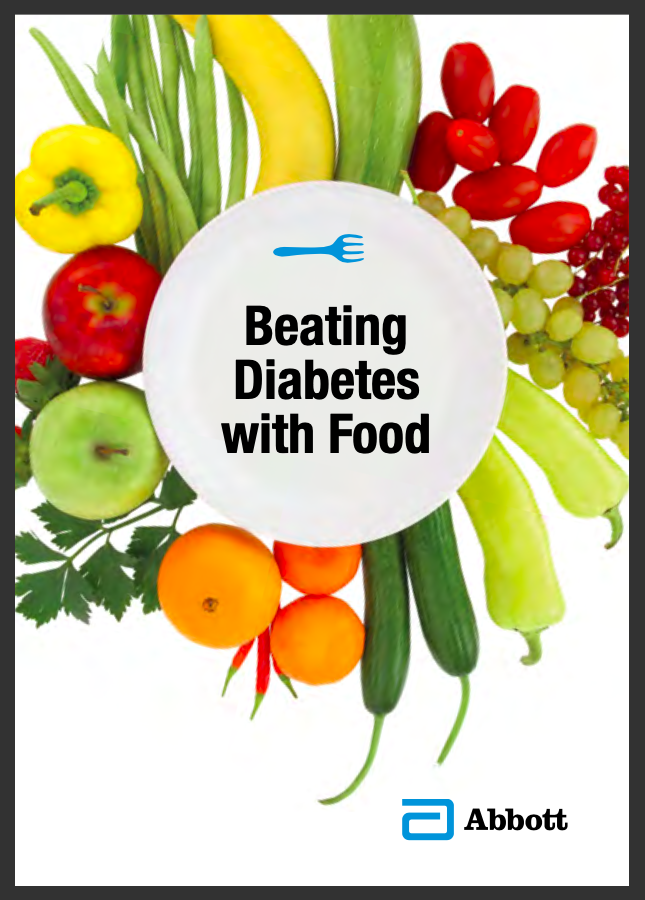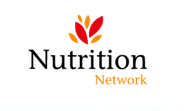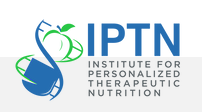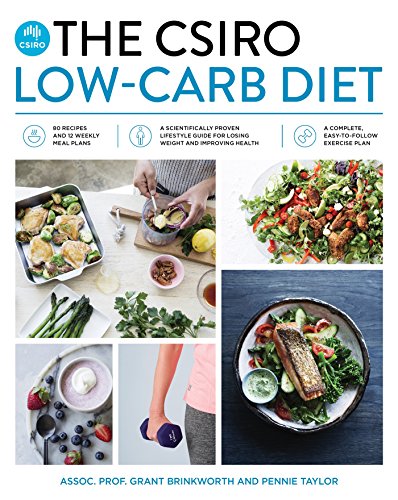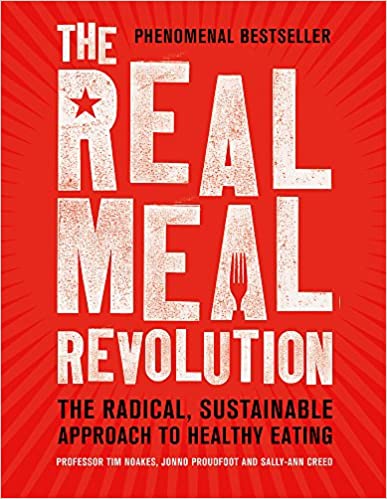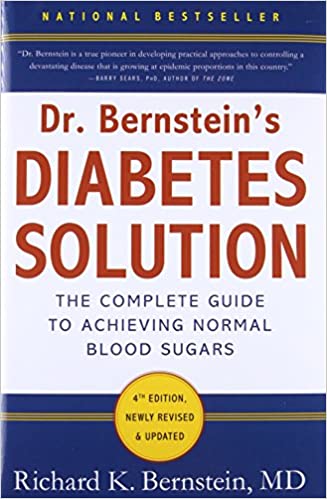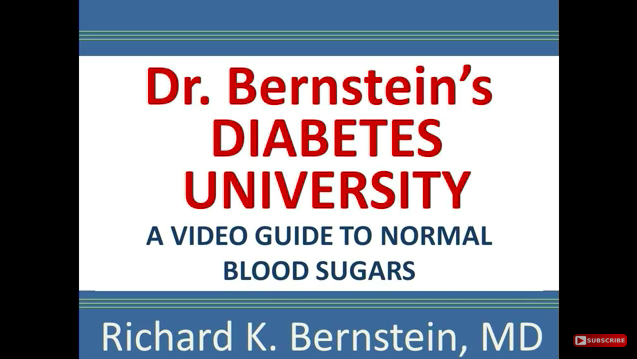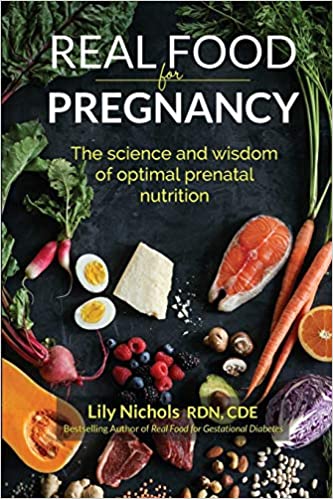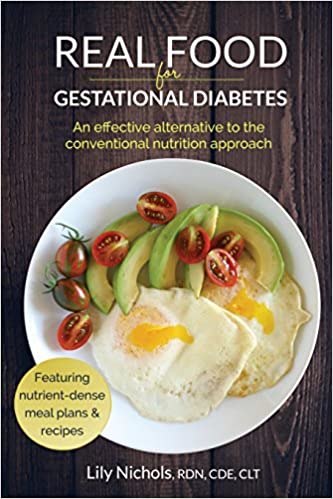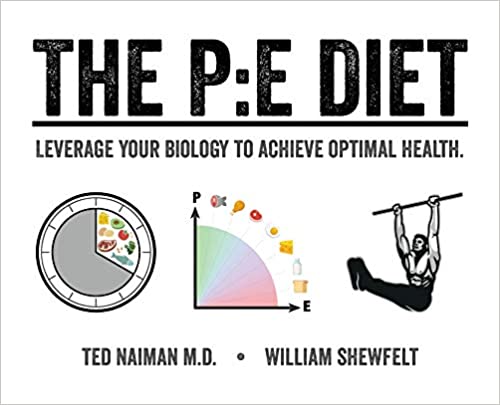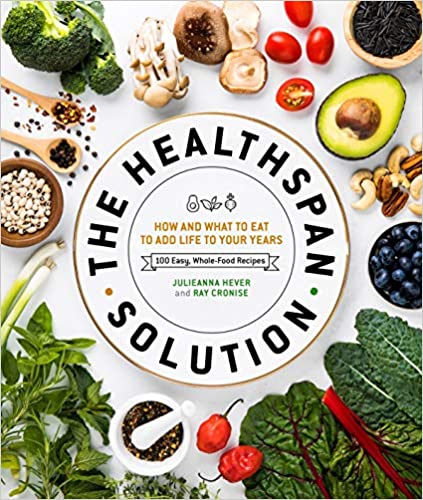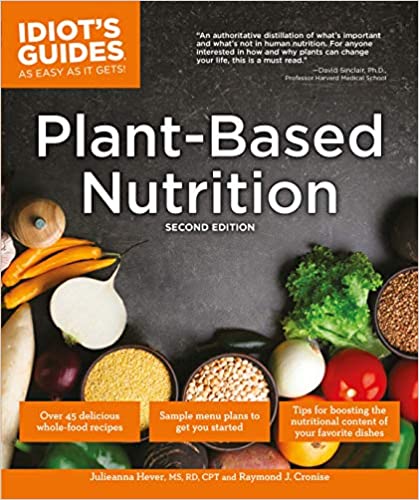 eslazeno: On January 15, 2021, Abbott Czech Republic published the English edition of a new leaflet for patients with diabetes, a result of a collaboration of Jan Vyjídák, Hana Krejčí MD PhD (Diabetology Center, General University Hospital, Prague) and Julie Zákostelecká (Paleozdrave.cz) as well as Radomíra Kožnarová MD CSc (Institute of Clinical and Experimental Medicine, Prague) and several other medical doctors and also patients with Type 1 Diabetes (T1D), Type 2 Diabetes (T2D) and Gestational Diabetes (GDM). In the Czech Republic, this leaflet is unique, because it covers all three main types of diabetes (T1D, T2D and GDM), and also brings a concise description of three major healthy diets (balanced-Mediterranean, vegetarian, low carbohydrate) and two methods of achieving T2D remission. In addition, it offers extra seven tips how to improve glycaemic control, achieve better treatment outcomes and reduce or deprescribe medications. The leaflet was originally published in two formats – an online PDF available for download here, and a printed A5 leaflet.
eslazeno: On January 15, 2021, Abbott Czech Republic published the English edition of a new leaflet for patients with diabetes, a result of a collaboration of Jan Vyjídák, Hana Krejčí MD PhD (Diabetology Center, General University Hospital, Prague) and Julie Zákostelecká (Paleozdrave.cz) as well as Radomíra Kožnarová MD CSc (Institute of Clinical and Experimental Medicine, Prague) and several other medical doctors and also patients with Type 1 Diabetes (T1D), Type 2 Diabetes (T2D) and Gestational Diabetes (GDM). In the Czech Republic, this leaflet is unique, because it covers all three main types of diabetes (T1D, T2D and GDM), and also brings a concise description of three major healthy diets (balanced-Mediterranean, vegetarian, low carbohydrate) and two methods of achieving T2D remission. In addition, it offers extra seven tips how to improve glycaemic control, achieve better treatment outcomes and reduce or deprescribe medications. The leaflet was originally published in two formats – an online PDF available for download here, and a printed A5 leaflet.
Our team welcomes any feedback. Please email us at jan.vyjidak@gmail.com
Credit (original CZ edition): Zuzana Fedak, Honza Gottwald, Pavla Ryan, Jakub Heglas, Aranka Medková, Alena Novotná
Credit (EN edition): Phil Thompson, Karina Bronska, Roderick Lambert, Adéla Kábelová et al, Tara Kelly, Sinead Cummins
Special thanks to Andreas Eenfeldt at Dietdoctor.com who inspired this journey with his 2011 talk The food revolution (see the famous Bayer patient leaflet at 32:12 here), Tim Noakes for fighting the cause, Sarah Hallberg et al at Virta Health for their amazing work on T2D remission, David Unwin et al at Norwood Surgery for offering hope to ordinary patients not just in the United Kingdom, Richard Bernstein for his extraodinary work in Type 1 Diabetes, Lily Nichols for her incredible work in Gestational Diabetes, Roy Taylor for his invaluable insights into T2D remission, Hana Kahleova et al for their scientific pursuit of the benefits of plant-based diets, and many other doctors, dietitians, scientists and patients who we referenced in our leaflet or who provided useful information, motivation or both.
Without Lenka Šmídová, Abbott Czech Republic, Hana Krejčí, Julie Zákostelecká and Radomíra Kožnarová, this leaflet would not have existed. Priceless.
Key words: Type 1 Diabetes, Type 2 Diabetes, Gestational Diabetes, healthy diets, Mediterranean diet, vegetarian diet, ketogenic diet, low carbohydrate diet, Type 2 Diabetes remission, intermittent fasting
Reviews (English edition)
Vyjídák (2021) Beating Diabetes with Food – Abbott ebook (grey)
Vyjídák (2020) Vidličkou proti cukrovce – Abbott ebook (original Czech edition)
Web Abbott: https://www.freestylelibre.cz/tipy-a-navody/ke-stazeni
Useful resources
More reviews
“First of all I’d like to congratulate you for your hard work and producing top quality patient information leaflet which is not imposing any advice but giving open options with eye catching illusions and easy to follow calculations.
There is a clear explanation of pros and cons of different available nutritional options. The advice for remission is for type 2 and not giving false hope to type 1. The importance of insulin in type 1 isn’t negated.
I love the way examples of three different diets are explained in colour coded tables. I know it’s not tragic light system and looks nice but perhaps choosing three different colours would have given slightly different message. Red, amber, green could falsely put people away from low carb diet thinking it’s red… but I think if someone reads carefully it explains the message very nicely.
The best message is to stay away from “poisonous” foods like ultra processed food products and a simple algorithm says it clearly how one should identify them.
It’s a highly individualised approach where some may skip breakfast, some may have small snacks, some may fast lengthy hours; but the overall message is the same choose what suits your needs.
The people who will benefit most from it would be the ones who are looking for a positive change in their lives and want to lose weight as well as control their diabetes. It is not meant for those looking for excuses to eat what they think is right by cherry picking things while not considering the impact of those on their glycaemic control and weight.
I feel majority of diabetes patients could benefit from it if supported to make correct choices. They should remember importance of monitoring and insulin if type 1. For type 2 diabetes patients on SGLT2 inhibitors and insulin, I’d advise not to go on very low carb containing ketogenic diet because of risks of DKA [diabetic ketoacidosis] if they suddenly have a trigger for ketosis.
Overall this is an excellent piece of dietary art for diabetes management. I love it.“
“I wish that this guide had been available when I was diagnosed with Type 1 Diabetes 36 years ago. I can only imagine how much pain, blood, sweat and tears (literally) would have been saved if I would have been taught from the beginning that I, as a patient, have a choice in finding what works the best for me in terms of managing blood glucose. It’s truly a dream come true, and I’m so happy to see this giant leap forward in the individuality of diabetes care.”
“I am a physician working in a state with the highest obesity and type 2 diabetes rates in the United States. I have been writing about and teaching nutritional approaches for reversing chronic disease for almost 10 years. My work with the military as well as my own diagnosis with maturity onset diabetes of youth (MODY) lead me down this path. I have learned quite a bit over the last decade on the science, practical side, and changing the medical system but always go back to the biology and want to learn more. My basic food rule now is “eat real food, which are plants and animals primarily ” and if you have insulin resistance (IR) which I think better described as carbohydrate intolerance the plants need to be low sugar and starch plants. I have given food lists out hundreds of times but always with a clear explanation relevant to the individual patient in front of me and their wishes.
My nutrition approach is to embrace the science and engage all and not alienate. We all need to get along. I have done several so called “debates” with health care providers on the topic. At the end of the day it is very friendly and we agree on about 90% of everything and in the end I hope the audience better understands insulin resistance and the huge power of simply eliminating junk food.
Important message: not all need to eat low carb diets. If you are healthy (not IR [insulin resistant]) just eat real food and assess what works best for you. If you are overweight or have pre-diabetes or diabetes self-experiment about the power of real food low carb. Experiment a bit with the eating patterns in the ebook.
In my clinic one of the most powerful tools is a flash glucose monitor. It helps each individual see for themselves the impact of food, exercise, and even stress and sleep. Dozens of my patients use this technology and you cannot on unsee what you immediately see. I give great thanks to Abbott for this technology as well as this guide book which is an effort to educate the current and next generation and reverse this pandemic of metabolic disease. A society riddled with chronic disease has no capacity to deal with the infectious threats we experience today and others which will present in the future.”
“This is a very ambitious document which covers three different dietary approaches to all types of diabetes. The title, ‘Beating Diabetes with Food’ conveys the positive message that food is an important tool for the management of diabetes.
There is a section that talks about normal glucose levels and this highlights the importance of different individual responses to food. This introduces the concept of personalised nutrition. The following sections describe the pros and cons of the different dietary approaches, but emphasis the importance of eating minimally processed, nutrient dense, organic food, whatever dietary approach is used.
There is guidance on what foods are typical in each type of diet, Balanced Mediterranean, Vegetarian, Plant-based, and Low Carbohydrate diet. There is also a good explanation about how to know if a food is ultra-processed.
It seems that this information pack is nuanced towards improving glycaemic control and remission of Type2 diabetes. There is a lot of discussion around carbohydrate management as a way to achieve weight loss, and a section about how to count carbohydrate.
Type 1 diabetes is mentioned in the low carbohydrate diet section, and this is useful information. The information pack rightly provides only basic information to introduce this management method for Type 1 diabetes, referring the reader to their clinician for further information.
This is mostly a dietary information resource, but the last section provides information about aspects of management of diabetes that are important in holistic care. So, information is provided on time delayed eating, physical activity and stress management that all contribute to health.”
“Imagine a world where Type 2 Diabetes and the expensive medications and horrific complications that can accompany it were once again a rarity.
This booklet takes the first step towards that reality by teaching practitioners and patients that remission and reversal of Type 2 Diabetes, first of all, is possible and, more, can be achieved through diet. In other words, Type 2 Diabetes does not have to be a chronic, progressive disease that will require increasing medication and likely involve complications that severely and negatively impact quality of life. Rather, simple dietary changes can, in many cases, prevent advancement of disease or reverse it altogether.
The booklet also makes great strides in promoting this message without further provoking “diet wars” enmity. Researchers may continue to present competing evidence about what diet is the most efficacious for Type 2 Diabetes, i.e. what diet will produce the best results under ideal circumstances. However, experienced clinicians know that for long-term positive outcomes, patient preference and cooperation is the key to the effectiveness of any dietary intervention.
By presenting three potential dietary approaches to remission or reversal of Type 2 Diabetes – Mediterranean, vegetarian, and low-carbohydrate – this booklet circumvents the “one diet to rule them all” mentality that pervades far too much clinical nutrition guidance.
Instead, the booklet focuses on the one thing that all three of these dietary approaches have in common: reducing or eliminating the “ultra-processed food products” that are cheap and plentiful in the global food supply.
In addition, the booklet avoids using vague, slogan-like language – such as “junk food” – to describe foods that should be limited in order to reverse Type 2 Diabetes. The definition for “ultra-processed food products” provided by the booklet should prove useful for clinicians and researchers alike in efforts to educate the public about health concerns related to these foods.
Many thanks to Jan Vyjídák and Abbott for working together to create this terrific resource.”
“Type 2 Diabetes is a disorder of high insulin and insulin resistance. Continued exposure to high insulin exacerbates insulin resistance and worsens the disease overtime. That is why Type 2 Diabetes is often thought to be a progressive condition. However, there is hope — an option for diabetes reversal. By reducing insulin levels in your body, you can restore insulin sensitivity, improve beta cell function, drop your HbA1c and you will lose weight as a bonus. The first step in reducing insulin and reversing diabetes is eliminating sugars, starches, and high-glycemic carbohydrates. Carbs spike insulin. The second is to progress to stricter forms of Therapeutic Carbohydrate Restriction (TCR), including the ketogenic option. The TCR approach may not be for everyone looking to bandage symptoms, but it is the most effective way to rescue the body from diabetes for those who are up for it. There is hope for reversal. A nice introduction to TCR, as well as other options, are included in this patient pamphlet. “
“Congratulations! Translating science for the everyday person is so important and not easy to do. This booklet is concise, easy to understand with practical advice and examples. I love the way it does not promote or stigmatise a specific diet protocol and focus on the common enemy – Ultra-processed Food Products (UPFPs). Giving patients options in how to approach their diet of choice, empowers them which in turn will lead to greater commitment and resolution. I wear many hats; biomedical scientist, clinical nutritionist and T1D-mum – and this booklet resonates on all levels. Well done again!”
“The new Abbott ebook, “Beating Diabetes with Food,” is an outstanding resource to help people with diabetes accomplish precisely what the title states! The combination of detailed nutrition information and simple infographics makes it perfect for healthcare practitioners and patients alike.”
“This patient leaflet is really good. I love that it presents three suitable dietary options that importantly share the same fundamental principle of avoiding UPFPs. I also love that it dispels the myth that breakfast is essential and the introduction of important issues such as the microbiome, sleep, stress, time restricted eating, resistant starch. Also a nice intro to looking for carbs/calculating carbs from the small print on the back of the packet.
Great also to point our that carb restriction in T1D can be beneficial. I didn’t know that dairy can be more likely to raise blood glucose in the morning vs later in the day. I also really like that T2D remission is stated as a potential outcome right at the beginning and also the idea that individual glycaemic responses can vary thus informing necessary change in the diet.
Overall it’s brilliant and definitely the best information leaflet I have seen for diabetes.
The colour scheme reminds me of the traffic lights (green=good, yellow=ok, red=bad) hence the red colour used for low carb diet get may put some readers off. Personally, I would not recommend rapeseed oil, the cold pressed version is likely to be healthier than the industrially produced ones. Also, I have not seen a rise in LDL-cholesterol in my patients on low carbohydrate diet, but find the recent VIRTA study (Athinarayanan 2020) offers some reassurance that LDL-cholesterol rise in LCHF diet may not be associated with adverse outcomes.
This will be fantastically useful resource. Great job.”
“This e-book is a great piece of work packed full of up to date information which is also fully referenced.
It informs the reader of the three main types of diabetes and how they can make the journey of improving their health. The main types of diet are listed and colour coded which makes it easier to quick reference once you have chosen your plan. I love how the common theme for any diet is that it’s a personal choice and that we should all be eliminating or reducing ultra processed food consumption.
The page on optimal blood glucose targets is a handy tool for people with any type of diabetes.
I love how it mentions combining eating to beat diabetes and getting adequate sleep, reducing stress and resistance training. These are also important parts to keeping us healthy but can so often be forgotten.
The section on methods of achieving type 2 diabetes remission gives hope to the reader. It includes ways of achieving this with low carb, low calorie, fasting and the ketogenic diet. The section on low carbohydrate diets is information and lets the reader choose how low carb they wish to go depending on what they want to achieve.
The seven tips to reduce glycaemia and weight is fantastic and full of helpful information.
I was pleased to see the part on calculating carbohydrate contents in food as this can often be confusing.
Overall, a fabulous e-book and one that I will be sharing with my patients – well done to everyone involved.”
“A very nice work. I have had Type 1 Diabetes for 31 years, and have seen many trends, recommendations, two pregnancies, pump and sensors continually for eight years, now insulin pens and sensors, low carbohydrate diet … and so I have a view on how diet affects glycaemic control. I very much welcome this new leaflet. It is a great summary, and at the same time many AHA moments for many people. I believe that this kind of education offers a true guide on happy and healthy life and also hope. Especially for patients with T1D, where the acceptance of the disease sometimes comes very late. I will recommend this leaflet to everyone, because T2D and GDM spread like a contagion. At the same time, it promotes a healthy eating and lifestyle for everyone. Many thanks.”
“From my perspective as a nutritional therapist with many years of experience, I can say that a patient leaflet has finally arrived which is actually helpful when it comes to helping patients with diabetes and obese patients improve their glycaemic control and reduce weight. My personal favourites are balanced and vegetarian diets, which I have most experience with, and I like the sample menu included in the leaflet.
The practical advice (7 tips for better glycaemic control) is very helpful for patients and will help diets with carbohydrates keep blood glucose lower, and gradually achieve stable glycaemic control, which is the key goal of diabetes therapy.
When I studied nutritional therapy, I worked at a diabetology clinic for a year. The educational material available there was literally a tool – how to create a patient with diabetes. Nothing from that material was useful.
Finally, a simple, factually correct and informative leaflet for treating diabetes is out. It should be available in every diabetology, obesitology and dietetics clinic.
Many thanks to the authors.”
“An excellent educational leaflet and a tool for patients with diabetes, with clear explanations and illustrations of dietary approaches in practice. It can be downloaded for free!
The leaflet does not prescribe any one diet that is universally best for everyone. One needs to consider dietary habits and individual preferences. The main types of diet with good results in diabetes treatment are the following:
Balanced-Mediterranean diet
Vegetarian diet
Low carbohydrate diet
“The leaflet is very well done. Everything is explained well. From a factual perspective, the leaflet is just perfect and will definitely help many people. Good job.”
“I am delighted to see this educational material. I myself have had Type 1 Diabetes for 3.5 years and I would have been grateful for this summary after diagnosis. The leaflet nicely explains the dietary options available to people with diabetes. I love the emphasis on the quality of foods, which is often missing from clinical guidelines. For some time, I have been eating a low carbohydrate diet. That this option exists took me several months to figure out, and therefore I am happy to see that it is now being mentioned as yet another dietary option for patients with diabetes.
I very much like the seven tips for better glycaemic control. Based on my own experience I can say that these are very helpful tips. Also, I love that the leaflet goes beyond diet, and lists other factors which play a key role in glycaemic control, eg. sleep, physical activity or stress.
I am thrilled that such a top quality leaflet was created which I can recommend to my clients. Fantastic work!”
“Excellent work. I will definitely use the leaflet for our patients. Very nicely done, understandable and finally an up to date tool.”
“I do not have diabetes, but this leaflet is really helpful. I believe everyone should read it.”
References
- CDS. Doporučený postup péče o diabetes mellitus 1. typu. DMEV. 2016;19:156–9.
- CDS. Doporučený postup péče o diabetes mellitus 2. typu. 2017. http://www.diab.cz/dokumenty/standard_lecba_dm_typ_II.pdf.
- CDS. Gestační diabetes mellitus – Doporučený postup screeningu, gynekologické, perinatologické, diabetologické a neonatologické péče 2017. 2017. http://www.diab.cz/dokumenty/DP_GDM_2017.pdf.
- Nichols. To pravé jídlo při těhotenské cukrovce. Barbora Kodetová – Nakladatelství Altenberg. 2018. https://alten-berg.cz/pro-zdravi/30-real-food-for-gestational-diabetes-lily-nichols.html. Accessed 29 Apr 2020.
- CDS. Nové cíle v kompenzaci diabetu. 2019. https://www.detskydiabetes.cz/aktuality/2019-09-nove-cile-vkompenzaci-diabetu. Accessed 29 Apr 2020.
- Abbott. FreeStyle Libre FGM. 2020. https://www.freestylelibre.cz/produkty. Accessed 29 Apr 2020.
- Krollová. Kontinuální monitorace koncentrace glukózy (CGMS). cukrovka. 2018. https://www.cukrovka.cz/kontinualni-monitorace-koncentrace-glukozy-cgms. Accessed 29 Apr 2020.
- Havlová. Diabetická dieta. 2013. https://www.abbottdiabetescare.cz/dokumenty/edukace/Diabeticka_dieta.pdf.
- Ajala O, English P, Pinkney J. Systematic review and meta-analysis of different dietary approaches to the management of type 2 diabetes. Am J Clin Nutr. 2013;97:505–16.
- Stentz FB, Brewer A, Wan J, Garber C, Daniels B, Sands C, et al. Remission of pre- diabetes to normal glucose tolerance in obese adults with high protein versus high carbohydrate diet: randomized control trial. BMJ Open Diabetes Res Care. 2016;4:e000258.
- Esposito K, Maiorino MI, Petrizzo M, Bellastella G, Giugliano D. The Effects of
a Mediterranean Diet on the Need for Diabetes Drugs and Remission of Newly Diagnosed Type 2 Diabetes: Follow-up of a Randomized Trial. Diabetes Care. 2014;37:1824–30. - Estruch R, Ros E, Salas-Salvadó J, Covas M-I, Corella D, Arós F, et al. Primary Prevention of Cardiovascular Disease with a Mediterranean Diet Supplemented with Extra-Virgin Olive Oil or Nuts. New England Journal of Medicine. 2018;378:e34.
- Kahleova H, Matoulek M, Malinska H, Oliyarnik O, Kazdova L, Neskudla T, et al. Vegetarian diet improves insulin resistance and oxidative stress markers more than conventional diet in subjects with Type 2 diabetes. Diabet Med. 2011;28:549–59.
- Kahleová. Vegetariánská strava v léčbě diabetu – Diabetická Asociace radí. Maxdorf; 2013. http://www.diabetickaasociace.cz/radi/vegetarianska-strava-v-lecbe-diabetu/.
Accessed 29 Apr 2020. - Kasper. Výživa v medicíně a dietetika. 2015. https://www.grada.cz/Produkty/Zdravotnictvi/ Lekarske-obory/Gastroenterologie-hepatologie/Vyziva-v-medicine-a-dietetika.
Accessed 29 Apr 2020. - Tay J, Thompson CH, Luscombe-Marsh ND, Wycherley TP, Noakes M, Buckley JD, et al. Effects of an energy-restricted low-carbohydrate, high unsaturated fat/low saturated fat diet versus a high-carbohydrate, low-fat diet in type 2 diabetes: A 2-year randomized clinical trial. Diabetes Obes Metab. 2018;20:858–71.
- Athinarayanan SJ, Adams RN, Hallberg SJ, McKenzie AL, Bhanpuri NH, Campbell WW, et al. Long-Term Effects of a Novel Continuous Remote Care Intervention Including Nutritional Ketosis for the Management of Type 2 Diabetes: A 2-Year Non-randomized Clinical Trial. Front Endocrinol (Lausanne). 2019;10:348.
- ADA. Introduction: Standards of Medical Care in Diabetes—2020. Diabetes Care. 2020;43 Supplement 1:S1–2.
- Vašáková. Nízkosacharidová strava. Módní dieta nebo zdravější způsob stravování? | NUTRIADAPT. 2018. https://www.nutriadapt.cz/zajimave-cteni/nizkosacharidova-strava-modni-dieta-nebo- zdravejsi-zpusob-stravovani. Accessed 29 Apr 2020.
- Kaspar MB, Austin K, Huecker M, Sarav M. Ketogenic Diet: from the Historical Records to Use in Elite Athletes. Curr Nutr Rep. 2019;8:340–6.
- Krejčí. Nízkosacharidová strava v léčbě diabetes mellitus. Vnitr Lek. 2018;64:742–52.
- Feinman RD, Pogozelski WK, Astrup A, Bernstein RK, Fine EJ, Westman EC, et al. Dietary carbohydrate restriction as the first approach in diabetes management: critical review and evidence base. Nutrition. 2015;31:1–13.
- Lennerz BS, Barton A, Bernstein RK, Dikeman RD, Diulus C, Hallberg S, et al. Management of Type 1 Diabetes With a Very Low–Carbohydrate Diet. Pediatrics. 2018;141. doi:10.1542/ peds.2017-3349.
- Turton JL, Raab R, Rooney KB. Low-carbohydrate diets for type 1 diabetes mellitus: A systematic review. PLOS ONE. 2018;13:e0194987.
- Krejčí. Upozornění pro diabetiky užívající léky. Neslazeno. 2017. https://www.neslazeno.cz/cukrovka/upozorneni-pro-diabetiky-uzivajici-leky/. Accessed 29 Apr 2020.
- Murdoch C, Unwin D, Cavan D, Cucuzzella M, Patel M. Adapting diabetes medication for low carbohydrate management of type 2 diabetes: a practical guide. British Journal of General Practice. 2019;69:360–1.
- Kohutiar M. Klasifikace potravin podle stupně technologického zpracování a její využití v prevenci civilizačních onemocnění. DMEV. 2019;22/2019:84–90.
- Rušavý Z, Pavlíková B, Krčma M, Vodičková M, Žourek M. JE MOŽNÉ DOSÁHNOUT REMISE DIABETU 2. TYPU? 2019;:6.
- Lean. Durability of a primary care-led weight-management intervention for remission
of type 2 diabetes: 2-year results of the DiRECT open-label, cluster-randomised trial – The Lancet Diabetes & Endocrinology. 2019. https://www.thelancet.com/journals/landia/ article/PIIS2213-8587(19)30068-3/fulltext. Accessed 3 Apr 2020. - Hallberg SJ, Gershuni VM, Hazbun TL, Athinarayanan SJ. Reversing Type 2 Diabetes: A Narrative Review of the Evidence. Nutrients. 2019;11:766.
- Taylor R, Barnes AC. Translating aetiological insight into sustainable management of type 2 diabetes. Diabetologia. 2018;61:273–83.
- Hallberg SJ, McKenzie AL, Williams PT, Bhanpuri NH, Peters AL, Campbell WW, et al. Effectiveness and Safety of a Novel Care Model for the Management of Type 2 Diabetes at 1 Year: An Open-Label, Non-Randomized, Controlled Study. Diabetes Therapy. 2018;9:583–612.
- Lean ME, Leslie WS, Barnes AC, Brosnahan N, Thom G, McCombie L, et al. Primary care-led weight management for remission of type 2 diabetes (DiRECT): an open-label, cluster-randomised trial. The Lancet. 2018;391:541–51.
- Morris E, Aveyard P, Dyson P, Noreik M, Bailey C, Fox R, et al. A food‐based, low‐energy, low‐carbohydrate diet for people with type 2 diabetes in primary care: A randomized controlled feasibility trial. Diabetes Obes Metab. 2020;22:512–20.
- Hainer. Základy klinické obezitologie. Grada Publishing, a.s.; 2011. https://download.dibuk.eu/preview/index.php?/6506/pdf. tbc
- Shukla AP, Andono J, Touhamy SH, Casper A, Iliescu RG, Mauer E, et al. Carbohydrate-last meal pattern lowers postprandial glucose and insulin excursions in type 2 diabetes. BMJ Open Diabetes Research & Care. 2017;5:e000440.
- Colberg SR, Grieco CR, Somma CT. Exercise Effects on Postprandial Glycemia, Mood, and Sympathovagal Balance in Type 2 Diabetes. Journal of the American Medical Directors Association. 2014;15:261–6.
- Kahleova H, Belinova L, Malinska H, Oliyarnyk O, Trnovska J, Skop V, et al. Eating two larger meals a day (breakfast and lunch) is more effective than six smaller meals
in a reduced-energy regimen for patients with type 2 diabetes: a randomised crossover study. Diabetologia. 2014;57:1552–60. - Fung. Kompletní průvodce půstem. 2018. https://www.melvil.cz/kniha-kompletni-pruvodce-pustem/. Accessed 29 Apr 2020.
- Krejčí. Jak zlepšit kompenzaci diabetu 1. typu. Neslazeno. 2019. https://www.neslazeno.cz/krejci-2019-jak-zlepsit-kompenzaci-diabetu-1-typu/. Accessed 29 Apr 2020.
- Davies MJ, D’Alessio DA, Fradkin J, Kernan WN, Mathieu C, Mingrone G, et al. Management of Hyperglycemia in Type 2 Diabetes, 2018. A Consensus Report
by the American Diabetes Association (ADA) and the European Association for the Study of Diabetes (EASD). Diabetes Care. 2018;41:2669–701. - Diabetes UK. Low-carb diets position statement for professionals (May 2017). Diabetes UK. https://www.diabetes.org.uk/professionals/position-statements-reports/food-nutrition-li festyle/low-carb-diets-for-people-with-diabetes. Accessed 29 Apr 2020.
- Brinkworth G, Taylor P. The CSIRO Low-Carb Diet. Macmillan Australia; 2017.











